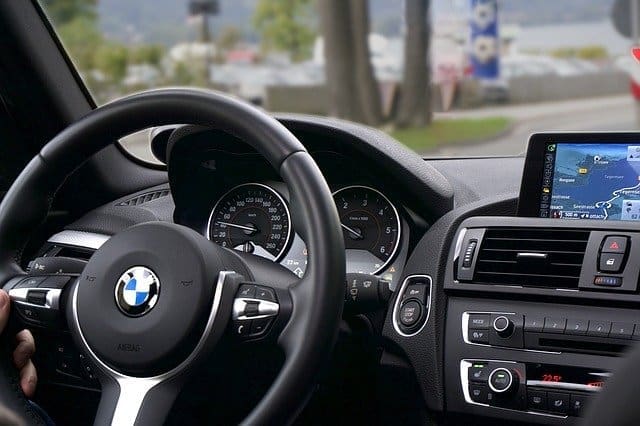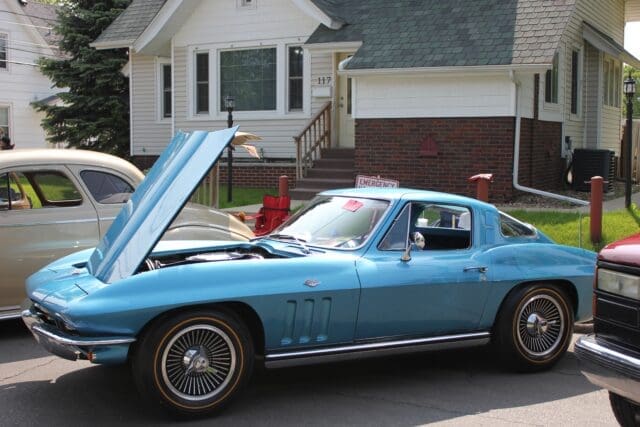We all know that the biggest draw of buying a used car is the price. But while you might be saving yourself a fortune on upfront costs, there are risks involved that might not have crossed your mind.
Making sure you make the right purchase is paramount when buying a used car. There’s nothing worse than being sold something that comes back to haunt you later with expensive repair costs and multiple breakdowns.
In partnership with Carvine we’ve rounded up seven tips for buying a used car so that you can buy with confidence and get the best deal for you.
What are your wants and needs?
Before you go face to face with a seller, you need to think about what you need and want from your next car. For instance, do you need a motor for work to accommodate your growing family or simply because it’s time for an upgrade?
Consider the following:
- Practical requirements: Do you need to cut running costs? Or get a bigger vehicle that is more comfortable for your family or hold more luggage for longer journeys? Essentially, you need to think about what you want from your next car from a practical perspective!
- Reliability: Splashing out for a used car may have cheaper upfront costs, but you don’t want to face costly repairs further down the road. So make sure you research the vehicles with the best reputation for reliability before making any hard and fast decisions
- How do you intend to use the car? Is it for short commutes to work or long-distance driving? Thinking about the engine size and fuel type will help you find the right vehicle for your lifestyle
- Eco-friendly? Now more than ever, there are growing concerns over the high emissions levels worldwide. In response, numerous low emission zones are cropping up across the country. For example, Euro 5 petrol and Euro 6 diesel currently have a free pass in London’s ULEZ. But with a push towards pure electric vehicles, how long will that exemption last?
Make a budget
Spending beyond your means is a big no when buying a car, new or used. So factor in what you currently spend on everyday bills and loan agreements, such as mortgages, phone bills, utilities, etc. Then calculate what you expect to pay on fuel (or charging if you want an electric vehicle), maintenance and repairs, MOT, tax, and insurance.
Buy from a reputable seller
The safest way to buy any car is from a reputable seller, trader, or dealer, as buying privately typically requires more car knowledge to ensure you’re not getting ripped off.
But there is a difference between the after-sales support and level of preparation you will receive from the preferred three sellers. Essentially, the bigger the business, the more readily available resources. Still, you’ll pay from the forecourt at the cost of higher overheads that are reflected in the price.
Independent garages usually offer a good middle ground between franchised dealers and driveway traders as a guiding point. However, garages and dealerships will have put each of their vehicles through vigorous checks and tests to give you better peace of mind as a buyer.
Look into car finance
While not all car finance deals are transferable to the used car market, some lenders will offer competitive loans for customers wanting to buy from a reputable dealership, such as a hire purchase.
While it’s tempting to accept dealership finance, doing some research beforehand will ensure you find the best deal and save yourself some extra cash in the long run.
Whether you have an IVA, CCJ, bankruptcy, default, or a series of missed payments on your credit report that have caused you to be rejected by loan dealers in the past, make sure you check out bad credit car finance. It is available from specialist lenders who will focus on your individual circumstances to help you get accepted for a loan.
Ask to see all the paperwork
Whoever you are buying your used car from should have easy access to all the relevant paperwork from VC5 logbooks to service history and allow you to see them before signing on the dotted line.
Check that the mileage is accurate, the MOT is accounted for, and up to date. Check the number of previous owners and any repairs or spare parts that have been done over the years.
If the seller produces false information or cannot supply the relevant information, walk away.
Book a test drive

Any reputable seller has no reason to stop you from going out on a test drive. They should have all the required insurances already in place. But more than that, getting behind the wheel allows you to taste what the car is like to drive and notice any potential issues.
Try to get out on various roads, where you can amble along country lanes before putting the vehicle through its paces on a faster road like a dual carriageway or motorway. This is the best way to check out the car’s capabilities: how well it handles, brakes, accelerates, and maneuvers.
If you notice anything odd, make sure you point it out to the seller, such as spongey brakes, grinding or squeaking from the gearbox, or noticeable smoke or fluid leaks from the engine. If they cannot provide a solution or are willing to knock down the price for potential repairs, this isn’t the car for you.
Check interiors and exteriors
Any car you want to buy deserves a good once over from you. Check that all the interiors are up to scratch, such as no tears in the upholstery, all the electronics from radio to windows, and the seat belts work properly.
Then, look over the bodywork, inside the bonnet, and in the boot to ensure no leaks or oil residue present, rust, or noticeable repairs that haven’t been accounted for in the paperwork.
Before you spend any money on a used car, inspect the interior and exterior of the vehicle. Nonetheless, you can install new car seat covers for added protection and schedule a car maintenance appointment to ensure your vehicle’s safety and dependability and help maintain its value.
Buying a used car is an excellent way to get a cheaper vehicle. Doing research beforehand and carrying out a series of checks when you find the car you’re looking for will ensure you get the best car for you.
Featured Image by Pixy.org




